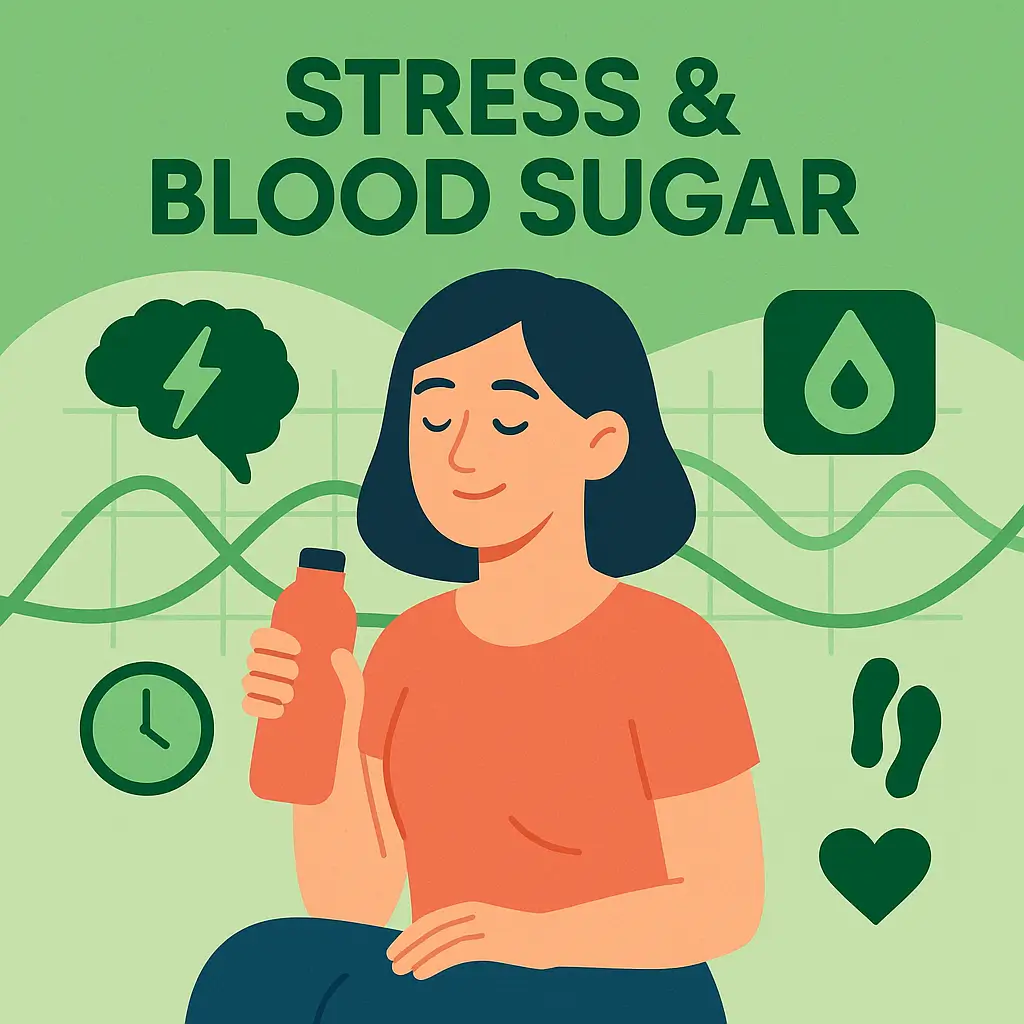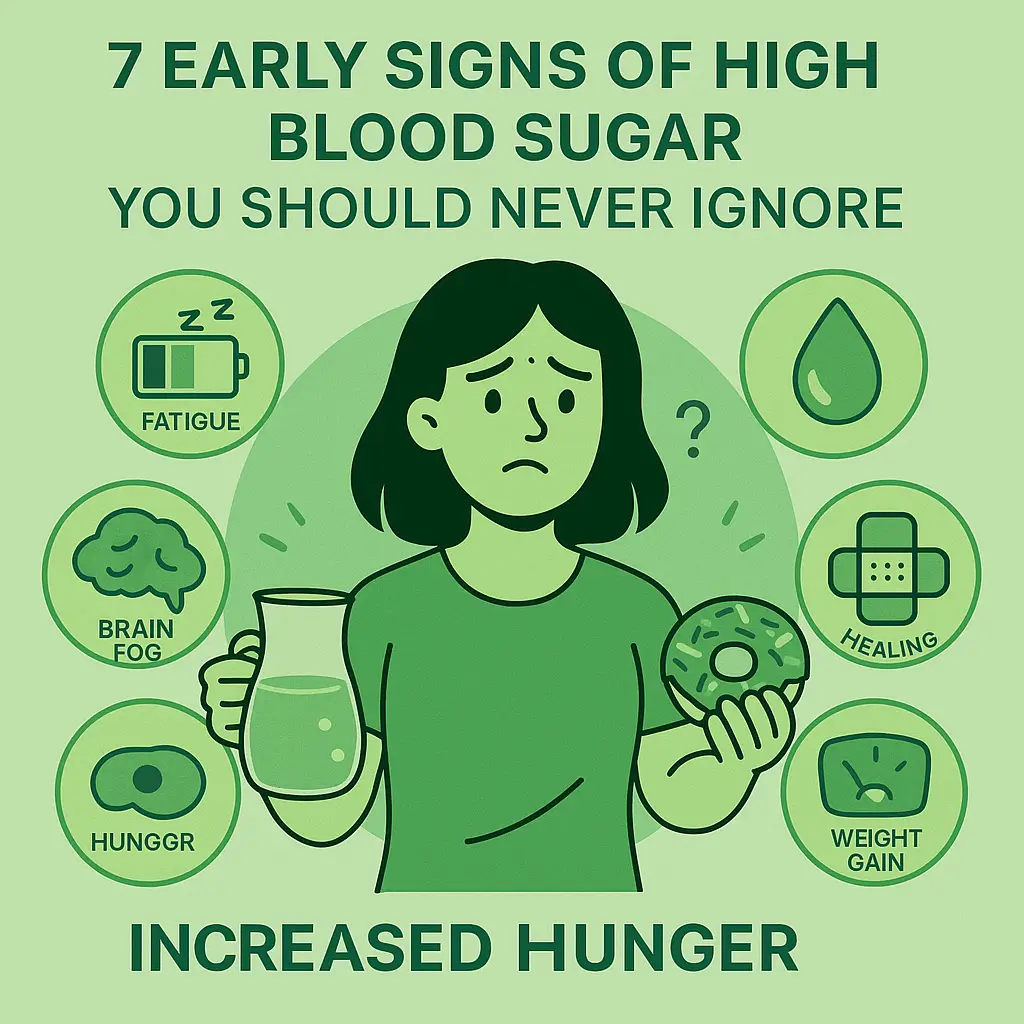The Hidden Link Between Stress and Blood Sugar Levels
Have you ever noticed that the days you’re most overwhelmed are the days you’re hungriest and most tired? That’s no coincidence: the hidden link between stress and blood sugar levels quietly shapes your energy, cravings, and mood far more than most people realize. In this post, you’ll see how that link works, why it keeps sabotaging your progress, and what you can start doing about it—then we’ll point you to a deeper solution that builds on these ideas.
The Hidden Link Between Stress and Blood Sugar Levels: What It Really Means
When you feel stressed, your body prepares for “action.” It releases stress hormones that tell the liver to push stored glucose into the bloodstream for quick fuel. Short bursts are fine, but modern life keeps that signal “on” far too often. Over time, the hidden link between stress and blood sugar levels shows up as higher peaks after meals, lower energy between meals, and a stronger pull toward quick carbs.
Said simply: your body thinks it needs fast fuel to survive a busy inbox or traffic jam, so it steers you toward snacks—even when you’re trying to eat better.
Why This Problem Persists (Even When You’re “Being Good”)
You might be exercising, eating cleaner, and tracking portions—yet progress stalls. Common reasons:
- Sleep debt. Less sleep raises stress signals and worsens glucose control the next day.
- Mental load. Constant decision-making keeps your stress switch half-on.
- All-or-nothing dieting. Long gaps between meals + stress = bigger blood sugar swings.
- Sit-all-day schedules. Minimal movement after meals leaves glucose circulating longer.
Because of the hidden link between stress and blood sugar levels, these everyday patterns quietly nudge your numbers the wrong way.
Common Triggers That Expose the Hidden Link Between Stress and Blood Sugar Levels
- Rushed breakfasts or skipping meals entirely.
- Caffeine on an empty stomach, amplifying jitters and cravings later.
- Back-to-back meetings that leave no time to decompress.
- Ultra-processed snacks that hit fast and fade faster.
- Dehydration, which can feel like hunger and push you toward sweets.
- Nighttime screen time, raising stress and disrupting sleep quality.
Spotting these triggers helps you catch the hidden link between stress and blood sugar levels in real time.
What It Looks Like Day to Day
- You power through the morning on coffee, then crash around 3 p.m. and grab something sweet.
- You eat a solid dinner but feel snacky again an hour later.
- You wake up wired at 2 a.m., mind racing, and drag the next day.
- Workouts feel harder, recovery feels slower, and motivation dips.
These are typical signs that stress is steering your blood sugar—and your choices.
What Most People Try (and Why It Falls Short)
- More willpower. You promise to “just say no,” but stress biology tends to win.
- More cardio. Helpful in doses, but overdoing it can spike stress further.
- Stricter dieting. Cutting more can backfire, driving bigger rebounds and cravings.
- Extra coffee or energy drinks. Brief lift, bigger crash.
These moves treat symptoms, not the underlying stress-sugar loop.
Simple First Steps That Actually Help
You don’t need a perfect routine—just small levers that weaken the hidden link between stress and blood sugar levels:
- Post-meal movement: 10–15 minutes of easy walking after lunch or dinner.
- Protein at breakfast: steadies energy and reduces mid-morning cravings.
- Breath breaks: 60–90 seconds of slow nasal breathing between tasks.
- Light at the right times: morning daylight, dimmer evenings for better sleep.
- Hydration habit: a glass of water before each meal to reduce “thirst-as-hunger.”
These tweaks lower stress signals and make your eating plan easier to follow.
How a Next-Step Solution Fits In
Lifestyle changes are the foundation, but many readers ask for support that helps them stay calm, sleep better, and keep energy steady. That’s where a targeted approach focused on stress support and metabolic balance can help. We cover that strategy in detail here: How Stress-Reducing Supplements Can Improve Your Metabolic Health. It builds on everything you’ve just learned about the hidden link between stress and blood sugar levels and shows how to reinforce the habits that work.
Curious now? Mid-article tip: open the guide above in a new tab so you can dive deeper after finishing this one.
FAQs (Quick Reads)
Does stress really spike blood sugar even if I eat well?
Yes—through the stress response, your body can release extra glucose into the bloodstream, revealing the hidden link between stress and blood sugar levels even on “good diet” days.
Why am I hungrier when I’m stressed?
Stress pushes you toward quick-energy foods. Protein, fiber, and short walks help smooth that effect.
How fast can this improve?
Many people notice steadier energy within a week of better sleep, post-meal walks, and structured meals.
Conclusion
You’re not “bad at willpower”—you’re living with the hidden link between stress and blood sugar levels. When stress runs the show, it shapes appetite, cravings, sleep, and recovery. Start with tiny levers—protein at breakfast, short walks, breath breaks—and you’ll feel the difference quickly.
When you’re ready to strengthen those wins with a supportive, gentle approach that targets the very loop causing trouble, take the next step:
👉 Read now: How Stress-Reducing Supplements Can Improve Your Metabolic Health














Post Comment